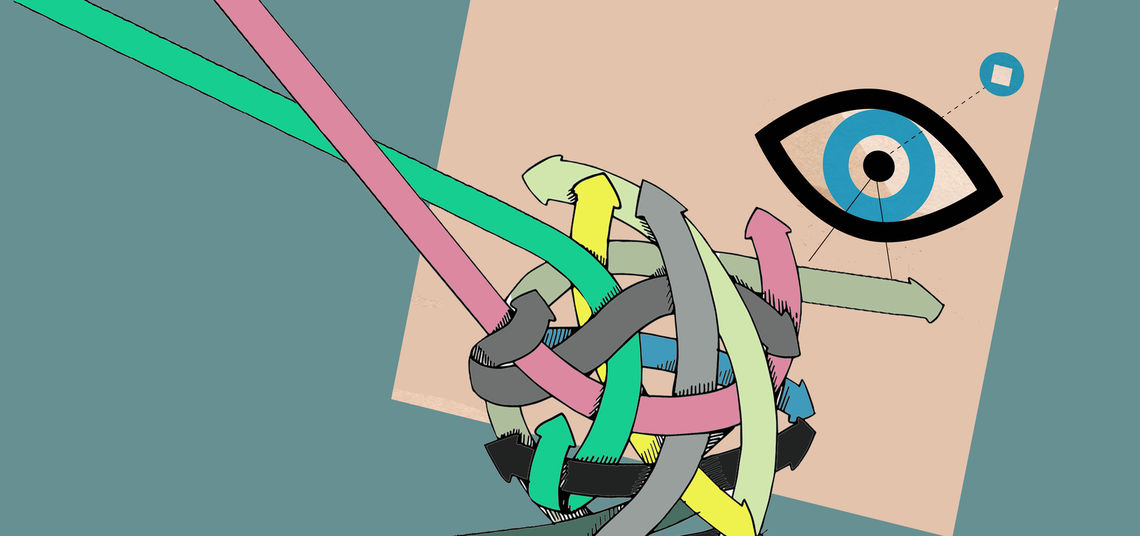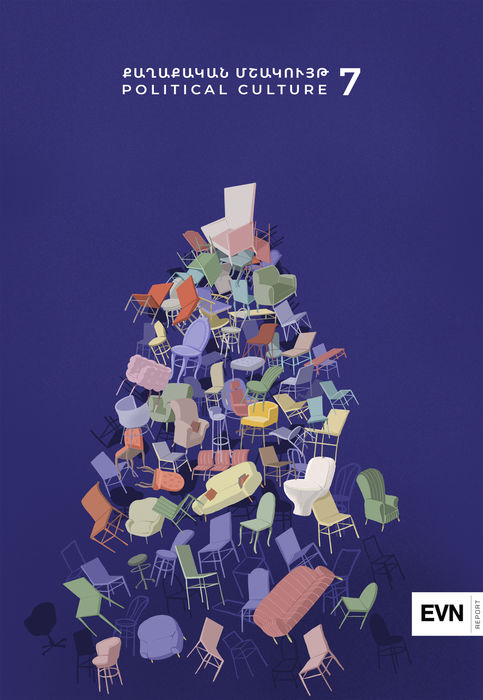

With Armenia’s septuagenarian First President Levon Ter-Petrossian officially throwing his hat into the ring for the upcoming snap parliamentary elections, Armenian voters now face the unenviable choice between two former presidents with closets full of skeletons, and the incumbent Prime Minister who presided over a biting military defeat. Ironically, while this summer’s election is gearing up to be one of the most competitive yet in Armenia’s democratic history—with 26 parties and alliances contesting the vote––the lack of new faces or ideas three years after the Velvet Revolution has left many voters disenchanted with the few viable choices.
This unpalatable responsibility of choosing between equally unsavory would-be leaders should be familiar to voters in established democracies. This democratic anxiety was perhaps best illustrated in the Season 8 South Park episode, Douche and Turd. The show’s four protagonists decide to enter two fictitious mascot candidates—a giant douche and a turd sandwich—in a vote after the school’s original mascot, a cow, gets panned by PETA.
To the boys’ surprise, both their picks become unlikely frontrunners as the thoroughly unenthused student body contemplates the choice between a literal giant douche and a turd sandwich. The episode’s catharsis is reached when one of the boys, Stan, having fled to the PETA commune to escape public pressure to vote between two undesirable options, receives some surprisingly grounded advice from the PETA leader. “Nearly every election since the beginning of time has been between some douche and some turd,” Stan is told. “They’re the only ones who suck up enough to make it that far in politics.”
The episode was meant as a not-too-subtle allegory at the height of the 2004 U.S. presidential election. But it also demonstrates how a system of governance dependent on compromise produces a governing class that evokes less enthusiasm, and more complacency among voters. Fundamentally, democracies are not designed to elevate the best possible leaders, but rather the least terrible candidates. The most established democracies, though, are built to function irrespective of the leader in place.
Though it may be tempting to dismiss Armenia’s current political malaise as a democratic dead-end, this “new-normal” for Armenia would look right in place for any other democracy. The Prime Minister’s post-war approval rating, at 45 percent, is not far off from those of Canadian Prime Minister Justin Trudeau (41 percent), British Prime MInister Boris Johnson (38 percent) and French President Emmanuel Macron (37 percent). In contrast to the unsustainably high ratings he enjoyed early in his career, Pashinyan’s current figures perhaps merely reflect where an elected official’s support should be.
While some may sneer that democratic principles are incompatible with the current geopolitical realities, mindset or existential threats that Armenia faces, democracy is actually not a foreign import. Democratic impulses are as inherent to Armenian political culture as any part of the European continent. The Apostolic Church—the only Armenian institution which has endured uninterrupted for millennia—elects its leaders. Revered Enlightenment thinkers, Raffi, Khachatur Abovyan and Mikayel Nalbandyan among many, internalized the value of liberty into the Armenian political discourse, which reverberates to this day.
This sense of rugged individual egalitarianism, borne out of centuries of stateless agrarianism, survives in the form of modern Armenian politics’ reverence to iconoclasm—a rather unique phenomenon in the post-soviet space. In contrast to the megalomaniacal personality cults fostered by neighboring Caspian dictators, Armenian cities do not bear the names of current or former presidents, there are no statues glorifying living political leaders, nor are there streets or convention centers honoring their wives, mothers or children. Even the most “authoritarian” of Armenian leaders knew to avoid such a faux-pas. Indeed, even attempts to glorify past leaders don’t always avoid public outcry.
But if democratic impulses are indigenous to Armenian political culture, what’s missing is the institutions to buttress them. Yet paradoxically, these very institutions are constantly being undermined by conflicting authoritarian currents.
The same refrain that we’re hearing today—that only a strongman can save Armenia from impending doom—resonates to the 1990s. It is, after all, the same justification that led one president to falsify election results, and another in turn, to usurp him in a palace coup. That same rhetoric justified the use of state violence against its citizens, and later still, violence against the state by its citizens.
Thus, in a feat of extraordinary historical irony, Armenia’s three-thousand-year-old story continues to be written in spite of—and not thanks to—these failed attempts by self-titled “saviors of Armenia.” Still, those who look to the return of past leaders, or lament the lack of “new faces and new ideas” don’t grasp that leadership is not nurtured in a void.
The Njdehs, Andraniks, Davit Beks, Montes and other legendary heroes of old are revered specifically because they are so few and far between, born by chance at the right time. Rather than one-off heroes, what Armenia requires is the ability to consistently produce adequate, capable leaders, administrators, commanders, executives and public servants. In other words, a cultural—if not institutional—paradigm shift in governance.
In mature democracies, rather than acting as vehicles to promote the candidacy of individuals, political parties have institutionalized the process of identifying, recruiting and funneling future leaders into positions of responsibility. The path to leadership for many candidates typically includes stints as military officers, mayors, business executives, regional governors, elected representatives and ministerial appointments as their parties routinely shuffle between government and opposition.
But for a country which has never successfully replaced its government through free and fair elections, it should come as no surprise that those with experience in governance are corrupt, and those who aren’t corrupt are inexperienced. Armenia’s would-be reformers, shut out of administrative career opportunities for decades, never even had a chance—until now.
It is this class of new reformers which is now learning to swim in the deep end. 77 percent of sitting parliamentarians have never previously held elected office. Fewer still among the cohort of ministers, deputy ministers, agency directors, regional governors and mayors have risen from the ranks of Armenia’s civil service. Armenia’s new Prime Minister, Nikol Pashinyan, is himself a product of this stagnation in governance. Before assuming the country’s leadership, his only previous experience in politics was a seven-year stint as an opposition MP.
This isn’t just a theory, either. It’s no coincidence that states which foster democratic governance and liberalize markets also provide higher living standards for citizens. As Armenian-American economist Daron Acemoglu points out, “inclusive political institutions emerge from a balanced increase in state capacity and the distribution of power.”
Authoritarianism, in contrast, concentrates this state capacity around a single individual, while bureaucrats are relegated to the role of sycophants. But the problem with autocracy is that, eventually, we run out of autocrats. Stable, democratic institutions may not inspire the same amount of enthusiasm among voters, but in the long term, a series of mediocre yet democratically-elected leaders will undoubtedly have a much more tangible impact on Armenia’s long-term security and prosperity than a series of enlightened autocrats.
The fact that so many aspiring-if-uninspiring candidates have chosen the ballot box over the ammo box to bring their message to voters this summer suggests that democracy has firmly consolidated itself as the primary expression of Armenian political consciousness. Candidates will come and go, but the institutions must survive. So what if the choice is between a douche and a turd?


The 1919 National Elections
Although the short-lived First Republic of Armenia is often viewed through the prism of the government’s activities, such as military operations, state defense, social issues, and foreign policy, the electoral processes at the time parallel today’s reality.
Read moreCaricature: From the Soviet Era to Independence
Political caricature was an inseparable companion of the newspapers that were being formed under the new freedoms of speech and the press of independent Armenia.
Read moreLatest Poll Numbers Imply a False Majority Election Outcome
The latest phone survey about the coming parliamentary election in Armenia was recently released. The seat projection arising from the poll is problematic in that it foresees a false majority scenario. Harout Manougian breaks it down.
Read more



